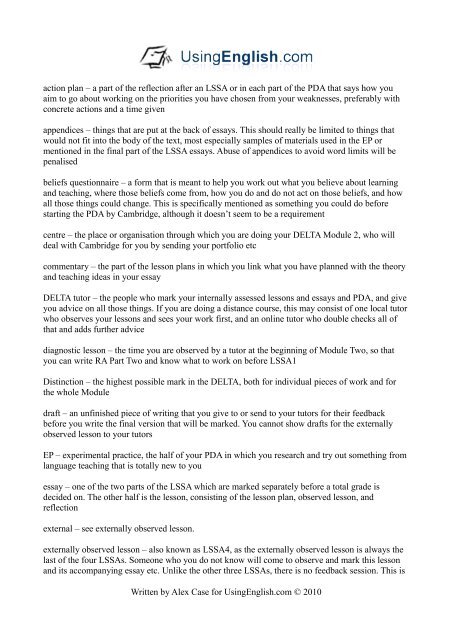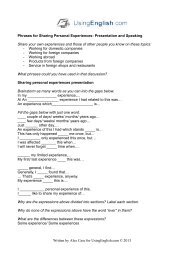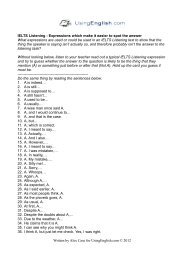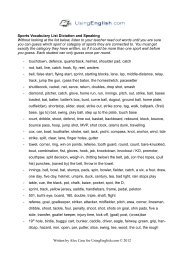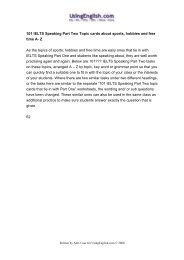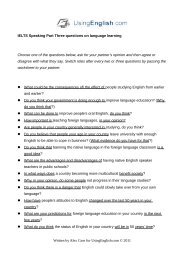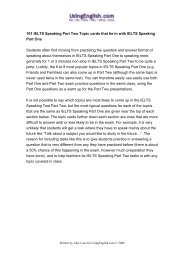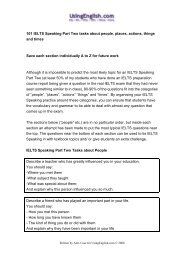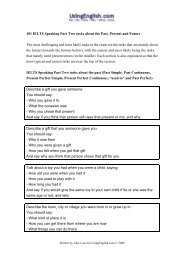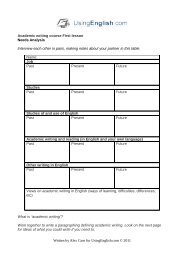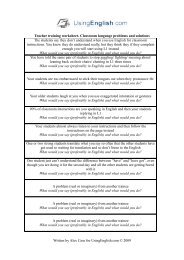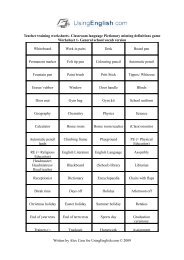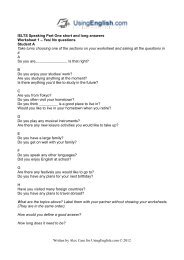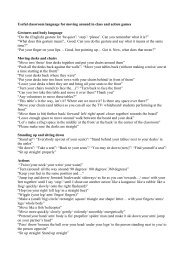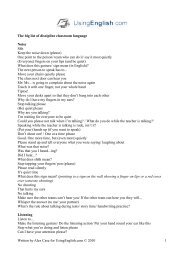Create successful ePaper yourself
Turn your PDF publications into a flip-book with our unique Google optimized e-Paper software.
action plan – a part of the reflection after an LSSA or in each part of the PDA that says how you<br />
aim to go about working on the priorities you have chosen from your weaknesses, preferably with<br />
concrete actions and a time given<br />
appendices – things that are put at the back of essays. This should really be limited to things that<br />
would not fit into the body of the text, most especially samples of materials used in the EP or<br />
mentioned in the final part of the LSSA essays. Abuse of appendices to avoid word limits will be<br />
penalised<br />
beliefs questionnaire – a form that is meant to help you work out what you believe about learning<br />
and teaching, where those beliefs come from, how you do and do not act on those beliefs, and how<br />
all those things could change. This is specifically mentioned as something you could do before<br />
starting the PDA <strong>by</strong> <strong>Cambridge</strong>, although it doesn’t seem to be a requirement<br />
centre – the place or organisation through which you are doing your <strong>DELTA</strong> <strong>Module</strong> 2, who will<br />
deal with <strong>Cambridge</strong> for you <strong>by</strong> sending your portfolio etc<br />
commentary – the part of the lesson plans in which you link what you have planned with the theory<br />
and teaching ideas in your essay<br />
<strong>DELTA</strong> tutor – the people who mark your internally assessed lessons and essays and PDA, and give<br />
you advice on all those things. If you are doing a distance course, this may consist of one local tutor<br />
who observes your lessons and sees your work first, and an online tutor who double checks all of<br />
that and adds further advice<br />
diagnostic lesson – the time you are observed <strong>by</strong> a tutor at the beginning of <strong>Module</strong> Two, so that<br />
you can write RA Part Two and know what to work on before LSSA1<br />
Distinction – the highest possible mark in the <strong>DELTA</strong>, both for individual pieces of work and for<br />
the whole <strong>Module</strong><br />
draft – an unfinished piece of writing that you give to or send to your tutors for their feedback<br />
before you write the final version that will be marked. You cannot show drafts for the externally<br />
observed lesson to your tutors<br />
EP – experimental practice, the half of your PDA in which you research and try out something from<br />
language teaching that is totally new to you<br />
essay – one of the two parts of the LSSA which are marked separately before a total grade is<br />
decided on. The other half is the lesson, consisting of the lesson plan, observed lesson, and<br />
reflection<br />
external – see externally observed lesson.<br />
externally observed lesson – also known as LSSA4, as the externally observed lesson is always the<br />
last of the four LSSAs. Someone who you do not know will come to observe and mark this lesson<br />
and its accompanying essay etc. Unlike the other three LSSAs, there is no feedback session. This is<br />
Written <strong>by</strong> Alex Case for UsingEnglish.com © 2010


